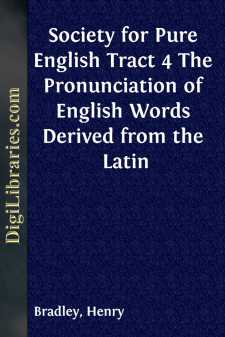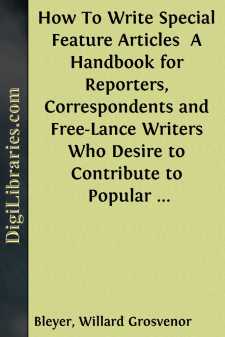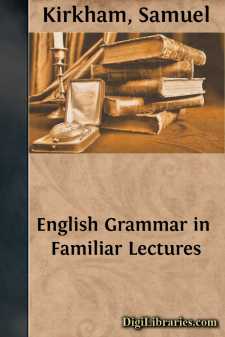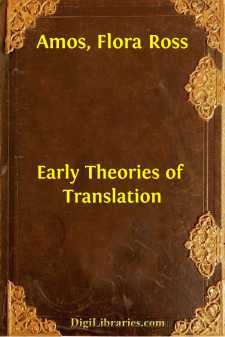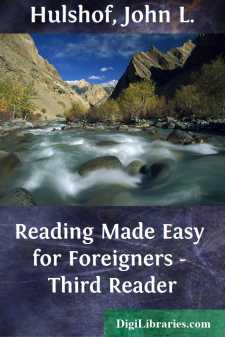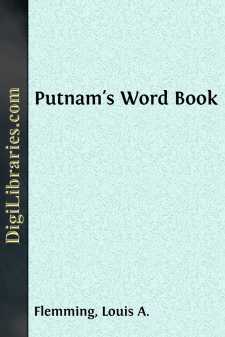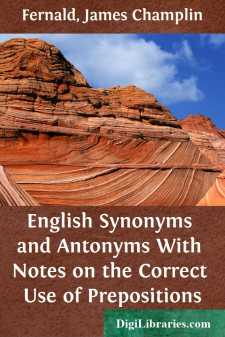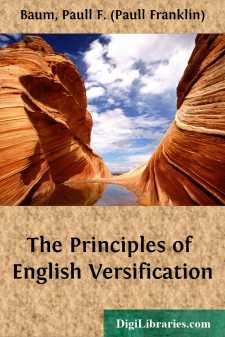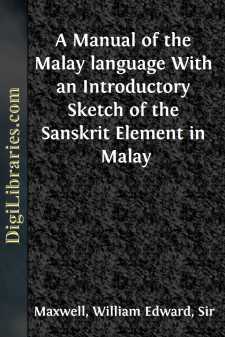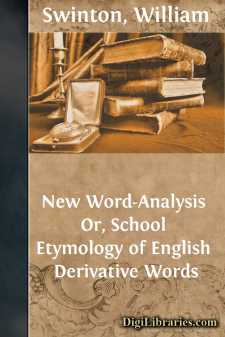Language Arts & Disciplines
Language Arts & Disciplines Books
Sort by:
by:
Henry Bradley
ON THE PRONUNCIATION OF ENGLISH WORDS DERIVED FROM LATIN [This paper may perhaps need a few words of introduction concerning the history of the pronunciation of Latin in England. The Latin taught by Pope Gregory's missionaries to their English converts at the beginning of the seventh century was a living language. Its pronunciation, in the mouths of educated people when they spoke carefully, was...
more...
CHAPTER I THE FIELD FOR SPECIAL ARTICLES Origin of Special Articles. The rise of popular magazines and of magazine sections of daily newspapers during the last thirty years has resulted in a type of writing known as the "special feature article." Such articles, presenting interesting and timely subjects in popular form, are designed to attract a class of readers that were not reached by the...
more...
by:
Samuel Kirkham
LECTURE I TO THE YOUNG LEARNER. You are about to enter upon one of the most useful, and, when rightly pursued, one of the most interesting studies in the whole circle of science. If, however, you, like many a misguided youth, are under the impression that the study of grammar is dry and irksome, and a matter of little consequence, I trust I shall succeed in removing from your mind, all such false...
more...
by:
Flora Ross Amos
PREFACE In the following pages I have attempted to trace certain developments in the theory of translation as it has been formulated by English writers. I have confined myself, of necessity, to such opinions as have been put into words, and avoided making use of deductions from practice other than a few obvious and generally accepted conclusions. The procedure involves, of course, the omission of some...
more...
by:
John L. Hulshof
LESSON I FLAG DAY In this fair land of ours you can see the Stars and Stripes floating over every public school. This beautiful flag stands for our country. Every American is proud of his country's flag. It stands for all that is good and dear to an American. It stands for Liberty. It proclaims liberty to all. Every star stands for liberty. Every stripe stands for liberty. It stands for liberty of...
more...
Preface The purpose of this book, as conceived by the author, is not to attempt to create or to influence usage by pointing out which words should or should not be used, nor to explain the meaning of terms, but simply to provide in a form convenient for reference and study the words that can be used, leaving it to those who consult its pages to determine for themselves, with the aid of a dictionary if...
more...
PREFACE. The English language is peculiarly rich in synonyms, as, with such a history, it could not fail to be. From the time of Julius Cæsar, Britons, Romans, Northmen, Saxons, Danes, and Normans fighting, fortifying, and settling upon the soil of England, with Scotch and Irish contending for mastery or existence across the mountain border and the Channel, and all fenced in together by the sea, could...
more...
PREFACE Most of the older discussions of English versification labored under two difficulties: an undue adherence to the traditions of Greek and Latin prosody more or less perfectly understood, and an exaggerated formalism. But recently the interest and excitement (now happily abated) over free-verse have reopened the old questions and let in upon them not a little light. Even today, however, a great...
more...
The language which I have endeavoured to illustrate in the following pages is the Malay of the British Settlements in the Straits of Malacca, some knowledge of which I have had the opportunity of acquiring during sixteen years’ service in Penang, Province Wellesley, Malacca, Singapore, and Perak. Dialectical peculiarities are so abundant in Malay that it is impossible to teach the colloquial language...
more...
by:
William Swinton
PREFACE. The present text-book is a new-modeling and rewriting of Swinton's Word-Analysis, first published in 1871. It has grown out of a large amount of testimony to the effect that the older book, while valuable as a manual of methods, in the hands of teachers, is deficient in practice-work for pupils. This testimony dictated a double procedure: first, to retain the old methods; secondly, to add...
more...


